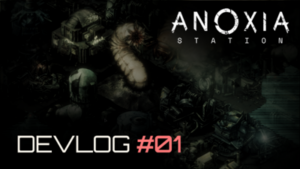In the shadowy corners of the gaming world, horror strategy games have carved a niche for themselves, offering a unique blend of strategic depth and bone-chilling narratives. It’s not just about managing resources or deploying units; it’s about immersing players in a world where sinister plots unfold, and every decision can lead to harrowing consequences. The narrative, in these games, isn’t a mere backdrop; it’s the driving force behind the player’s experience, weaving a tapestry of dread that enhances every strategic choice. Anoxia Station is much more than a game about the last hope for humanity after a supervolcano eruption.
The Power of Narrative Immersion:
Horror strategy games excel at creating a sense of dread through meticulously crafted narratives. These stories often delve into the darkest aspects of humanity, exploring themes of corruption, madness, and the unsettling unknown. Players are not just strategists; they are investigators, survivors, and unwilling participants in unfolding horrors, driven by the need to understand and survive the sinister plots around them.
The narrative in Anoxia Station was inspired by books such as Gloomy River, Dune or movies such as Alien and The Lighthouse. These stories explore madness and greed on top of horror,
Building a World of Dread Through Storytelling:
The narrative in these games isn’t simply told; it’s experienced. Environmental storytelling, cryptic clues, and unsettling encounters contribute to a sense of unease that permeates every aspect of gameplay. Players are constantly questioning their surroundings, piecing together fragments of information to unravel the sinister plots that threaten their survival.
Player Agency and Narrative Consequences:
Horror strategy games often grant players significant agency, allowing them to shape the narrative through their choices. However, these choices are rarely simple, and the consequences can be devastating. This level of player agency creates a sense of investment, making the narrative feel personal and impactful. Every strategic decision becomes a moral dilemma, forcing players to confront the darkness within themselves.
The Psychological Impact of Narrative-Driven Horror:
Narrative-driven horror transcends jump scares, tapping into deeper psychological fears. The slow burn of dread, the creeping sense of paranoia, and the constant threat of the unknown create a sense of unease that lingers long after the game is over. This psychological impact enhances the strategic experience, making every decision feel weighty and consequential.
Crafting Compelling Villains and Antagonists:
The narrative’s strength often lies in its villains and antagonists. These are not just mindless monsters; they are complex characters with their own motivations, often rooted in twisted ideologies or tragic pasts. Unraveling their sinister plots becomes a central driving force, pushing players to explore the darkest corners of the game’s world. In Anoxia Station, your most dangerous enemies may be among your crew.












